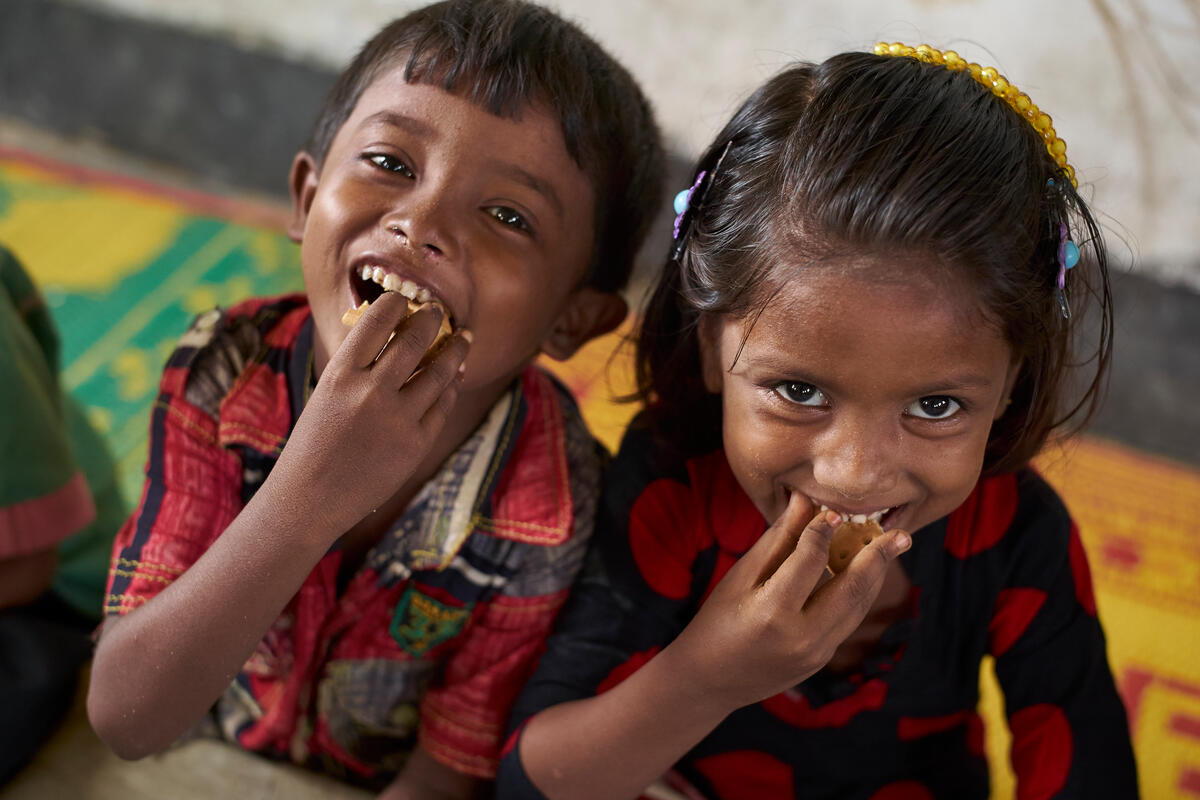
Within the celebrations of the 10th anniversary of the WFP Centre of Excellence against Hunger Brazil, this week we highlight the case of Bangladesh, a country with which the WFP Centre of Excellence collaborated for several years and has as one of the results the approval of the country’s National School Feeding Policy and Strategy. School feeding started in Bangladesh in 2001, when WFP partnered with the government to launch a school feeding programme in the country’s most vulnerable areas. In 2011, inspired by the advance of WFP’s school feeding activities, the Government of Bangladesh launched its School Feeding Programme in Poverty-Prone Areas. In 2012, a delegation from Bangladesh made a high-level study visit to Brazil to learn about the country’s experience with school feeding and its solid institutional framework for food and nutrition security. The visit was facilitated by the Centre of Excellence and had the support of the Brazilian government and the WFP country office.
After the mission to Brazil, the Centre of Excellence continued to support Bangladesh and in July 2013, the government and WFP started a pilot school feeding project. With positive results in terms of attendance, a drop in the rate of school dropout and better school performance, the government decided to move forward with the development of a national school feeding policy. At the request of the Bangladesh government and the WFP country office, two technical missions were organized by the Centre of Excellence in 2015 to support the preparation of a plan to facilitate the development of the National School Feeding Policy and Strategy. With the sharing of the Brazilian experience and after constant technical advice and support from the WFP Centre of Excellence and the country office, in 2019 the Government of Bangladesh approved the National School Feeding Policy.
The policy was developed with the participation of government officials and technical teams from the WFP country office and the Centre of Excellence, and aims to provide 30% of the nutritional needs of all primary school students in the country. Once the policy is fully implemented, the state will provide an all-day school meal to every preschool and primary student in public schools across the country. To meet the nutritional needs of children, the programme is expected to serve cooked meals five days a week, along with micronutrient-fortified biscuits once a week. Meals will contain at least four food groups from the ten possible food groups to ensure food diversity. By 2020, a total of 3 million children received school food assistance in Bangladesh, provided by both the government and WFP.
Discover more in the book”A Decade of Cooperation: 10 years of wfp’s Center of Excellence against Hunger in Brazil”.
To download the post “Country Experiences: Bangladesh”, click here.




